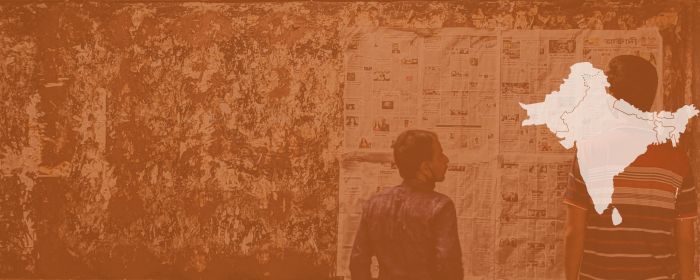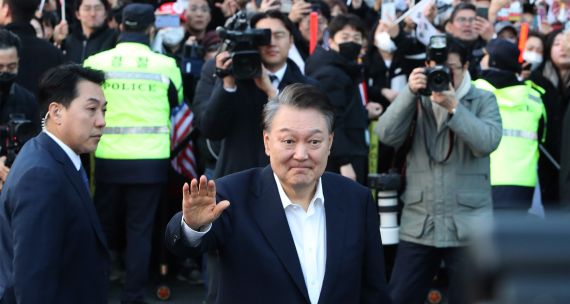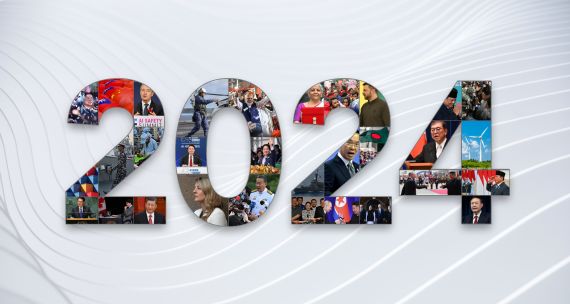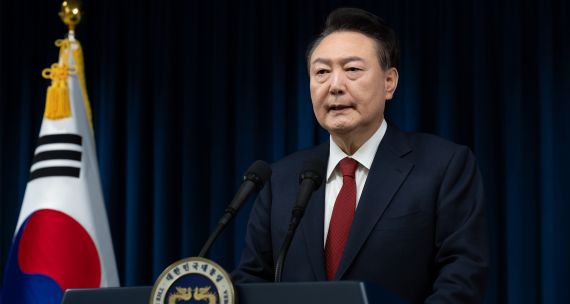The Takeaway
The Bangladeshi government, by closing the opposition's newspaper, has strengthened censorship and diluted accountability in the country. As Bangladesh approaches general elections in 2024, no major party is left to contest the ruling Awami League (AL). Bangladesh’s democracy, already weakened by political and economic crises, stands threatened as press freedoms dwindle and the country slides into a one-party state.
In Brief
On February 20, the Dainik Dinkal, a Bengali-language daily with a circulation of 15,580, suspended its operations after 37 years serving as the mouthpiece for Bangladesh’s main opposition party, the Bangladesh Nationalist Party (BNP). The Dhaka district magistrate, under Bangladeshi government directives, initially ordered the media outlet's shutdown in December 2022, accusing it of violating the country's printing and publication laws. In response, the newspaper filed an appeal with the Bangladesh Press Council and continued publishing. However, in February 2023, the council rejected Dainik Dinkal's plea and reinstated the government shutdown order.
Implications
Local and international media rights communities have labelled the government-sponsored closure of the newspaper as an attack on press freedoms. In January, the government also ordered the closure of 191 news sites, accusing them of publishing “anti-state news.” Meanwhile, journalists in Bangladesh have faced challenges ranging from lawsuits and harassment to assault. The World Press Freedom Index 2022 ranked Bangladesh 162nd, the lowest in South Asia, and behind Russia (155th) and Afghanistan (156th).
Some observers link the newspaper shutdown to the ruling party's broader crackdown on political opposition ahead of the upcoming general elections. Between August and December 2022, the government charged over 5,000 BNP activists for allegedly inciting violence during public protests. These protests, held across the country, demanded solutions from the AL government on inflation and the country’s energy crisis. Protesters also demanded an election under a neutral caretaker government. In December 2022, the arrest of two senior BNP leaders, general secretary Mirza Fakhrul Islam Alamgir and standing committee member Mirza Abbas, was seen as an attempt by the AL-led government to stymie the BNP's efforts to gain political momentum.
The BNP has been adamant about not participating in the upcoming election, citing the AL’s reluctance to hold free and fair votes. Since 2010, the BNP has maintained this position, even going as far as boycotting the 2014 elections. When BNP and its allies hastily decided to run in the 2018 elections, they only won seven of 350 parliamentary seats. The lack of a viable candidate to lead the opposition political party makes it crucial for the BNP to strategize a grassroots national movement to reclaim its popularity if it intends to seriously contest the next election. Challenges at the top for the BNP include its chairperson and former prime minister Khaleda Zia being imprisoned since 2018 while her son and second-in-command, Tarique Rahman, has been in exile since 2016. Other political parties, including the Jatiya Party, the Communist Party, and Jamaat-e-Islami, are yet to share their election strategies. If the BNP does not participate in the 2024 elections, and with no other major party in the field, Bangladesh may lapse into a one-party state.
What’s Next
- Growing foreign concern as civil society space shrinks
A Human Rights Watch report accused the AL government of intimidating civil society members it perceives as politically “problematic” by issuing criminal charges and conducting raids on their homes. Bangladesh Chhatra League, AL’s student wing, has often been accused of creating an environment of fear at the grassroots level, preventing the rise of any alternative political leadership. Embassies of several countries, including the U.S., the U.K., Japan, and Germany, as well as the UN and human rights organizations, have voiced their concerns over the diminishing influence of the opposition, civil society, and press, while asking for a fair, multi-party election.
- Digital Security Act repressing freedom of expression
The Digital Security Act 2018 was enacted to provide Bangladeshi citizens with cybersecurity, but the government is allegedly exploiting the act to silence contrarian voices. The Centre for Governance Studies reports that from January 2020 to September 2022, 952 cases accusing 2,674 people were filed under the act, which considers a wide range of offences as cognizable (i.e. police can make arrests without a warrant) and non-bailable. Most accusers are affiliated with the government and the AL, revealing the broader trend of government control over public opinion. The draft Data Protection Act has triggered alarm in local and international spheres. If passed, its data mirroring provision may allow the government to use data for surveillance and censorship.
- Canadian interests in Bangladesh
Bangladesh is the third-largest apparel supplier to the Canadian market and, in 2022, it accounted for 13 per cent of total apparel imports to Canada. Home to more than 100,000 people of Bangladeshi origin, Canada has always fostered a mutually beneficial relationship with Bangladesh based on shared democratic values. The Canadian Indo-Pacific Strategy further emphasizes recognizing opportunities in the larger Indo-Pacific region, including Bangladesh. However, as Dhaka deviates from the multi-party system by imposing greater control on the press and political opposition, it raises questions for Ottawa as it seeks to balance its democratic values with economic interests.
• Produced by CAST's South Asia Team: Dr. Sreyoshi Dey (Program Manager); Prerana Das (Analyst); Suyesha Dutta (Analyst); Narayanan (Hari) Gopalan Lakshmi (Analyst); and Silvia Rozario (Analyst).




